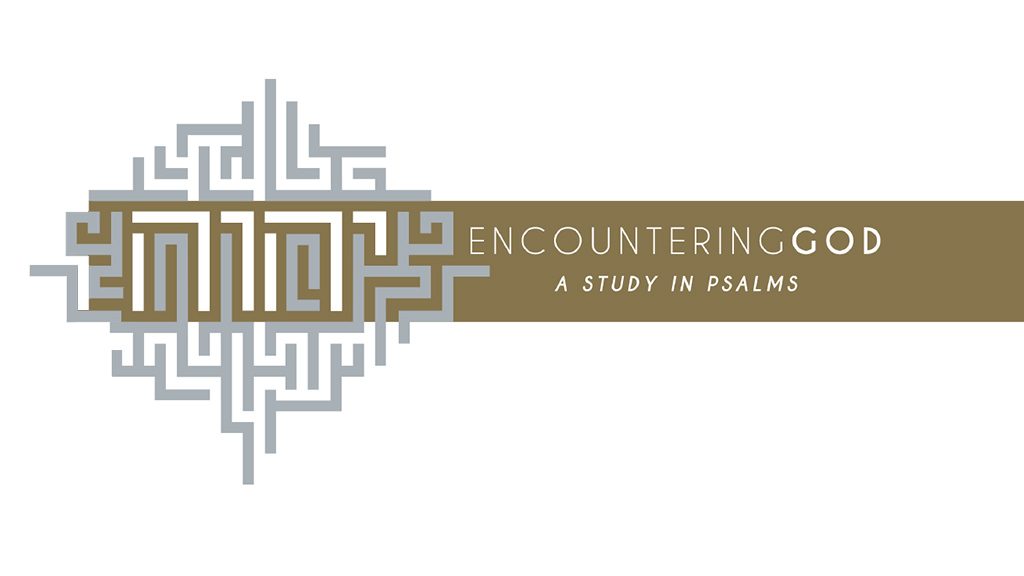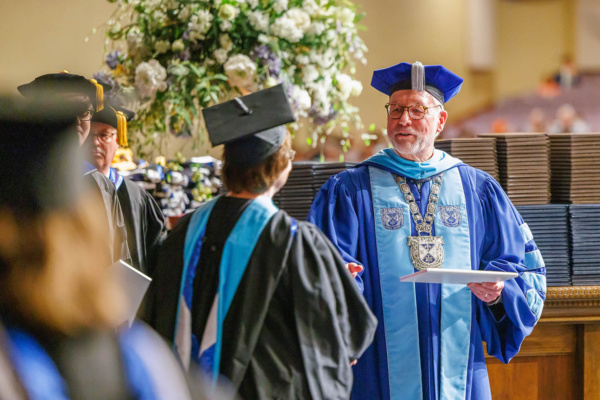How intimate are your thoughts about God? Are they as intimate as God’s thoughts about you? That would be impossible.
In Psalm 139 King David writes a compelling description of an infinite, immense God who is intimately aware of every person in the world. The purpose of this description is to overwhelm each one of us with the mind-blowing reality that God knows everything about us. As a result of this knowledge, we should be willing for God to identify anything that is grievous to Him in order that we may forsake it and walk in His ways.
Psalm 139 is a lesson in practical theology. David is not writing in the abstract. He takes the highest doctrinal truths about the nature of God and brings them down to where we personally live. He writes to both the head and the heart. So behold your God and stand in awe!
What Does God Know?
Psalm 139:1
O Lord, thou hast searched me, and known me.
Like a mining company looking for gold, God has searched deep into our hearts and minds. He is intimately and thoroughly acquainted with us. He knows everything about us—inside and out! He knows us better than we know ourselves. God is omniscient.
Psalm 139:2
Thou knowest my downsitting and mine uprising, thou understandest my thought afar off.
God knows us like no one else. He sees us when we get up in the morning and go to class. He watches us when we go to bed at night. He also knows everything that has happened during our day. God can read our minds. He knows what motivates and controls our thinking. He even knows where our thinking will end up.
Psalm 139:3
Thou compassest my path and my lying down, and art acquainted with all my ways.
Compassest literally means to winnow, like separating the wheat from the chaff. God carefully scrutinizes the roads we are traveling, whether we are going the right way or not. God knows when we lie down. God is thoroughly acquainted with our habits and patterns of behavior, and even secret actions.
Psalm 139:4
For there is not a word in my tongue, but, lo, O Lord, thou knowest it altogether.
God already knows what we are going to say before it comes out of our mouths because God knows the words as they are forming in our minds. This is a shocking reality to contemplate! God is intimately acquainted with every word we speak.
Psalm 139:5
Thou hast beset me behind and before, and laid thine hand upon me.
Like a city surrounded by its enemy and under siege with no place to escape, God is all around us. He is always behind us and always in front of us. Everywhere we go, God is. He has laid his hand upon us so that even if we wanted to try to escape His presence, we could not. Who can hide from God?
Psalm 139:6
Such knowledge is too wonderful for me; it is high, I cannot attain unto it.
God’s omniscience is incredible, fantastic, mysterious, and incomprehensible. We worship a God that we cannot understand, and that is a good thing.
O the depth of the riches both of the wisdom and knowledge of God! how unsearchable are his judgements, and his ways past finding out! (Rom. 11:33)
Where Is God Found?
Psalm 139:7
Whither shall I go from thy spirit? or whither shall I flee from thy presence?
The answer to David’s two rhetorical questions is that it is impossible to travel somewhere to avoid God’s presence. If we try to run from God, we will discover that God is already where we are headed. God is omnipresent.
Psalm 139:8–10
If I ascend up into heaven, thou art there: if I make my bed in hell, behold, thou art there. If I take the wings of the morning, and dwell in the uttermost parts of the sea; even there shall thy hand lead me, and thy right hand shall hold me.
David then answers three hypothetical questions concerning God’s presence in extreme places: heaven, hell, and the ends of the universe.
If we could go up to heaven, we would find out that God is there. If we made our beds in the depths of the underworld, God would be there. If we could take wings and fly with the speed of light to the corners of the universe, God would always be there to guide us and protect us by His own power.
Psalm 139:11–12
If I say, Surely the darkness shall cover me; even the night shall be light about me. Yea, the darkness hideth not from thee; but the night shineth as the day: the darkness and the light are both alike to thee.
While many people try to hide in the dark, David knew that darkness does not affect God’s vision. The darkness is not darkness to God. “Dark times are light to God. he is present in them, knowing perfectly all that is transpiring and what his eternal purposes are.”[1]
What Can God Do?
Psalm 139:13
For thou hast possessed my reins: thou hast covered me in my mother’s womb.
David then explains his awe of God’s omnipotence demonstrated in creation. He acknowledges that God created his inward parts. Specifically, the word reins refers to the kidneys. It symbolizes the inner parts and seat of one’s emotions. While David was in his mother’s womb, he was skillfully woven and knitted together by God. it is clear from this section that David was a human being at conception.
Psalm 139:14
I will praise thee; for I am fearfully and wonderfully made: marvellous are thy works; and that my soul knoweth right well.
David understands that God’s formation of him in his mother’s womb is “wonderful.” That means that God does what no human could ever do—create another human being. David confesses that God is wonderful (Isa. 9:6) and worships Him with reverential awe.
Psalm 139:15
My substance was not hid from thee, when I was made in secret, and curiously wrought in the lowest parts of the earth.
David had mentioned his inner organs being created by God. Now he speaks of his skeletal frame—“my substance”—being intricately woven and fashioned in secret and in the lowest parts of the earth (two metaphors referring to his mother’s womb).
“Embroidered with great skill” is an accurate poetical description of the creation of veins, sinews, muscles, nerves, etc. what tapestry can equal the human fabric?
Psalm 139:16
Thine eyes did see my substance, yet being unperfect; and in thy book all my members were written, which in continuance were fashioned [what days they should be fashioned], when as yet there was none of them.
David describes God’s seeing him as an unformed embryo: “my substance, yet being unperfect.” In that condition before there was ever a conception, God had already written in His book all the days that David would live on this earth including when he was born, how long he would live, when he would die, and what he would accomplish. Jeremiah says the same thing about his life:
Before I formed thee in the belly I knew thee; and before thou camest forth out of the womb I sanctified thee, and I ordained thee a prophet unto the nations. (Jer. 1:5)
Like a potter forms the clay in his hands, our entire lives are shaped by God’s sovereign hands.
Psalm 139:17–18
How precious also are thy thoughts unto me, O God! how great is the sum of them! If I should count them, they are more in number than the sand: when I awake, I am still with thee.
David acknowledges the value of these kinds of thoughts. What security and comfort this brings to every believer who knows that God is in control of his life! David also acknowledges that these thoughts flooded his mind in such a vast way that even if he tried to count them, they would be like numbering the grains of sand on the seashore. These innumerable thoughts about God absorbed David’s thinking and sustained him day after day.
How Should We Respond?
So how should we respond to what we have encountered in this psalm concerning God’s omniscience, omnipresence, and omnipotence?
We Should Reject the Way of Evil
Psalm 139:19–22
Surely thou wilt slay the wicked, O God: depart from me therefore, ye bloody men. For they speak against thee wickedly, and thine enemies take thy name in vain. Do not LI hate them, O Lord, that hate thee? and am not I grieve with those that rise up against thee? I hate them with perfect hatred: I count them mine enemies.
The character of God that David has described so amazingly in these verses is the primary reason David reacts so abruptly to those who are God’s enemies. These words seem harsh and reactionary until we learn to think like David.
These men are described as wicked, murderous, enemies, and haters of God. they speak maliciously, blasphemously, and rebelliously against God. David’s response is consistent with God’s response. If they hate God, David hates them. If they are God’s enemies, they are David’s enemies. David draws a sharp dividing line between him and those who are intent on evil.
We Should Walk in God’s Way
Psalm 139:23–24
Search me, O God, and know my heart: try me, and know my thoughts: and see if there be any wicked way in me, and lead me in the way everlasting.
David knew all too well the sinfulness of his own heart. Though he hated sin he was still prone to wander. Therefore, he was not just hard on his enemies, he was hard on himself!
David goes back to the beginning. He eagerly makes a request to God based on what God revealed about Himself in verse one. He opens himself up to God in complete transparency. He asks God to investigate him and be intimately acquainted with his soul and his thoughts. He asked God to perceive if there is anything in him that would cause pain or grief to God, himself, or others. David wanted to be in a place where he could confess and forsake his sins (Ps. 51).
He concludes with the desire to be led in the “way everlasting.” Since David came from God, he wanted to go back to God. This is the spirit of any true believer, even though we struggle mightily with sin and feel impure in the presence of a holy God. “Christians don’t want God to leave them alone.”[2]
[1] Steven J. Lawson, Holman Old Testament Commentary—Psalm 76–150, 334.
[2] Aaron Coffey, BJU evangelistic service, January 15, 2015.
Listen to Dr. Pettit’s chapel message on Psalm 139:
Join us for chapel every Monday through Thursday at 11 a.m. EST.








